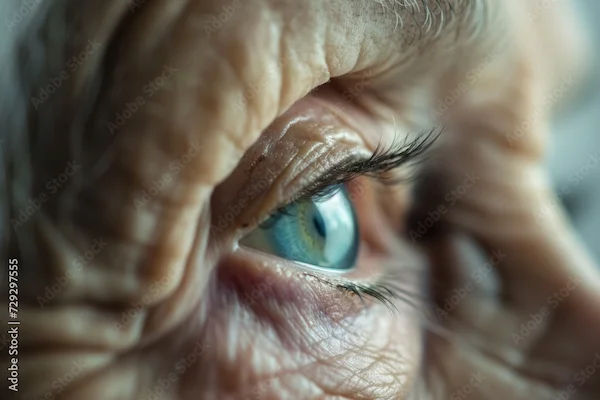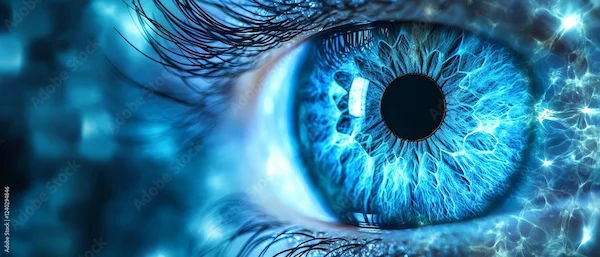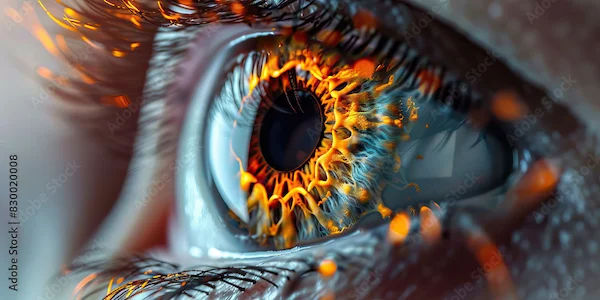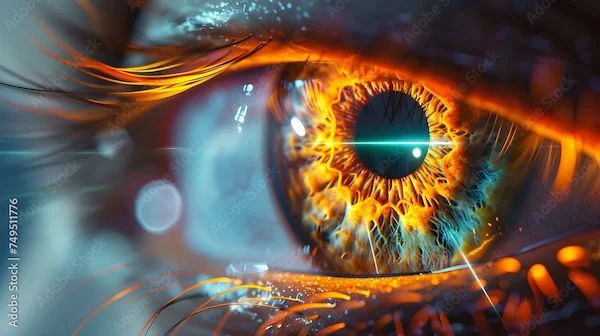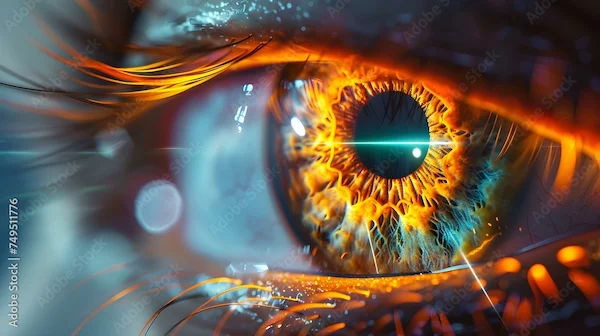Pictures Of Vision Before And After Cataract Surgery
Discover how cataracts affect vision and the dramatic changes patients experience after cataract surgery. Learn what before-and-after vision looks like and when to consult a specialist.

Written by Dr.Sonia Bhatt
Last updated on 16th Jul, 2025
.webp)
Introduction
If you or a loved one is considering cataract surgery, you might be curious about how vision changes before and after the procedure. Seeing real-life examples of vision improvement can help ease worries and set realistic expectations. In this article, we’ll explore how cataracts affect vision, what happens during surgery, and the remarkable difference it can make in daily life.
How Cataracts Affect Vision
A cataract is a clouding of the eye’s natural lens, which affects vision by making it blurry, hazy, or less colourful. Over time, cataracts can worsen, making everyday activities like reading, driving, or recognising faces difficult.
Common symptoms of cataracts include:
Blurry or foggy vision
Increased sensitivity to light and glare
Difficulty seeing at night
Colours appearing faded or yellow-tinted
Frequent changes in eyeglass prescriptions
Consult Top Specialists for Personalised Eye Health Advice
Before Cataract Surgery: What Vision Looks Like
Before surgery, vision with cataracts can vary from mild blurriness to severe impairment. Here’s how people often describe their sight:
Cloudy or Hazy Vision – Like looking through a frosted window.
Dim or Dull Colours – Colours lose their brightness, appearing washed out.
Glare and Halos – Bright lights like headlights or sunlight may cause discomfort.
Double Vision – Seeing multiple images from one eye.
Many patients don’t realise how much their vision has declined until after surgery when they experience clear sight again.
After Cataract Surgery: The Transformation
Cataract surgery involves removing the cloudy lens and replacing it with an artificial intraocular lens (IOL). The results are often life-changing!
What patients notice after surgery:
Sharper Vision – Objects appear clearer and more defined.
Brighter Colours – The world looks more vibrant, as if a filter has been removed.
Reduced Glare – Night driving and bright lights become easier to handle.
Improved Contrast – Details in shadows and low light become more visible.
Many people report feeling like they’ve regained their youthful vision, often reducing or eliminating the need for glasses.
Real-Life Comparisons: Before vs. After
To help you visualise the difference, imagine:
Before Surgery: A foggy, yellowish view where street signs are hard to read, and faces appear unclear.
After Surgery: A crisp, bright view with sharp details and true-to-life colours.
(Note: While we can’t display actual images here, you can find before-and-after cataract surgery pictures online or ask your eye doctor for examples.)
Tips for a Smooth Recovery
To ensure the best results after cataract surgery:
Follow Post-Op Instructions – Use prescribed eye drops and avoid rubbing your eyes.
Wear Sunglasses – Protect your eyes from bright light and UV rays.
Avoid Strenuous Activities – Skip heavy lifting and swimming for a few weeks.
Attend Follow-Up Appointments – Regular check-ups ensure proper healing.
When to Consider Cataract Surgery
If cataracts interfere with daily life, it may be time to discuss surgery with an eye specialist. Modern cataract surgery is safe, quick (usually 15-30 minutes), and has a high success rate.
If you suspect you have cataracts or want to explore treatment options, Apollo 24|7 makes it easy to consult with expert ophthalmologists. Schedule an appointment or eye test today to take the first step toward clearer vision!
Conclusion
Cataract surgery can dramatically improve vision, restoring clarity and brightness to your world. By understanding what to expect before and after the procedure, you can feel more confident about your decision. If cataracts are affecting your quality of life, don’t hesitate to seek professional advice—your eyesight is worth it!
Consult Top Eye Specialists
Consult Top Specialists for Personalised Eye Health Advice

Dr. Smriti Nagpal
Ophthalmologist
13 Years • MBBS , MS (Ophthalmology)
New Delhi
Sunshine mediclinic, New Delhi

Dr. Vyankatesh Pharande
Ophthalmologist
25 Years • MBBS, MS (Ophthalmology )
Pune
PHARANDE EYE HOSPITAL & PHACO CENTER, Pune
Dr. S Venkateswaran
Ophthalmologist
35 Years • MBBS, PGD (OPTHALMOLOGY)
Tiruvannamalai
Shiva Eye And General Hospital, Tiruvannamalai

Dr. Sahiti Salguti
Ophthalmologist
10 Years • MBBS,MS Ophthalmology
Hyderabad
Yeshass Nethralaya eye hospital, Hyderabad
Dr. Kakarla Roopa
Ophthalmologist
3 Years • MBBS MS Ophthalmology
Tirupati
Anna Gowri Hospital, Tirupati
Consult Top Eye Specialists

Dr. Smriti Nagpal
Ophthalmologist
13 Years • MBBS , MS (Ophthalmology)
New Delhi
Sunshine mediclinic, New Delhi

Dr. Vyankatesh Pharande
Ophthalmologist
25 Years • MBBS, MS (Ophthalmology )
Pune
PHARANDE EYE HOSPITAL & PHACO CENTER, Pune
Dr. S Venkateswaran
Ophthalmologist
35 Years • MBBS, PGD (OPTHALMOLOGY)
Tiruvannamalai
Shiva Eye And General Hospital, Tiruvannamalai

Dr. Sahiti Salguti
Ophthalmologist
10 Years • MBBS,MS Ophthalmology
Hyderabad
Yeshass Nethralaya eye hospital, Hyderabad
Dr. Kakarla Roopa
Ophthalmologist
3 Years • MBBS MS Ophthalmology
Tirupati
Anna Gowri Hospital, Tirupati
